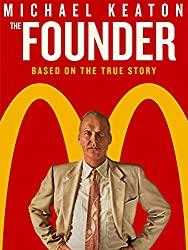
Photo by Daniel Reche on Pexels.com
" data-orig-size="1880,1253" data-image-title="photo of burger beside fires" data-orig-file="https://smallivy.files.wordpress.com/2023/01/pexels-photo-3616956.jpeg" data-image-description="" data-image-meta="{"aperture":"0","credit":"","camera":"","caption":"","created_timestamp":"0","copyright":"","focal_length":"0","iso":"0","shutter_speed":"0","title":"","orientation":"0"}" data-medium-file="https://smallivy.files.wordpress.com/2023/01/pexels-photo-3616956.jpeg?w=300" data-permalink="https://smallivy.com/2023/01/20/can-mcdonalds-pay-15-per-hour/pexels-photo-3616956/" alt="" class="wp-image-23056" data-large-file="https://smallivy.files.wordpress.com/2023/01/pexels-photo-3616956.jpeg?w=723" />Photo by Daniel Reche on Pexels.comThere were several strikes this week at fast food restaurants. McDonald’s was held up as an example of a corporation that could be paying its workers a lot more ($15 per hour versus $7.25 to start now). The arguments were that workers today aren’t teenagers. Instead they are single moms with two kids to feed.
Three arguments are commonly used. The first is that McDonald’s pays its chief executive millions of dollars more than companies did in the past while entry-level workers have seen wages stay stagnant or decline. The second is that McDonald’s and other corporations are seeing record profits and could share more. The final one is that the workers need the higher wages to live in places like New York City and raise two kids. Let’s look at each of these.
The CEO has seen a big rise in pay compared to the workers. I actually agree that the average CEO is paid way too much. The pay of a CEO (or any employee) should be what is required to find a keep a person who does a competent job. In the case of a cashier that is someone who will show up on time, work while they are there, and be fairly efficient in taking customer orders. A great cashier would present a great attitude and make people want to come back.
A competent CEO must be able to handle the day-to-day operations of the company. He or she must also have a vision, deciding how and when to grow the company, what things to change to bring in more business, and how to handle down turns in the economy. A great CEO will bring in a lot more money for the company than would an adequate CEO. Obviously there are far fewer people who have the skills and experience needed to be a competent CEO than there are who can be a cashier, so the pay should be quite a bit better – say $500,000 per year. There are far fewer still who have the vision and the ability to act on the vision to bring in significantly more money, so they can command a better salary, maybe a million dollars a year or more.
Often CEO pay, beyond the day-to-day operations pay, is linked to how much money they make for the company and the shareholders. For example, they may receive options that allow them to buy stock at a certain price. If they do a great job and the stock price rises a lot, they make a lot more money by buying the shares at the option price and selling them on the market. This is fair since the shareholders make a lot more money than they would have with a mediocre CEO. The trouble is that CEO base salaries have risen dramatically and the bonuses are getting easier to get. During the 2008 crash, many companies were even looking at lowering the prices for the options they had issued before the crash since they felt the stock price would never reach the original price again and the CEOs might leave without the additional compensation. The trouble with this is that the shareholders were losing a lot of money but the CEOs were getting paid the bonus anyway. Not exactly the way it was supposed to work.


McCafe Premium Roast Coffee, K-CUP PODS, 100 Count
The other issue is that CEO pay is normally set by the board of directors, which is usually made up of CEOs from other companies. Over the years, each board has raised the pay of their CEO, which has caused other boards to raise the pay of their CEO to catch up to or exceed the average. This has caused a huge increase in CEO pay to ridiculous levels.
The pay of CEOs has nothing to do with the pay of hourly workers, however. The pay for the CEO does not come from worker’s salaries, and the CEO is not the one who owns the business and keeps the savings from lower wages. It is the stockholders who are paying both salaries. CEO wages should come down because the stockholders are being abused, and stockholders need to get organized and demand more reasonable CEO pay. Just because the CEO were paid less, however, does not mean the hourly workers would get paid more. Note that three or four million dollars saved by lowering CEO pay would not go far split among hundreds of thousands of workers.
McDonald’s and other corporations are seeing record profits and could share more. McDonald’s did see record profits last year of $5.5 B, but that does not mean necessarily that they could pay a lot more to hourly workers, especially not $15 per hour. With 440,000 employees, if the entire profit were used to increase wages, that would be an increase of $6 per hour. This would only bring wages up to $13.25 for new employees – not the $15 being demanded.

McDonald’s: Behind The Arches


Paying all of the profit out as salaries would also eliminate the ability of the company to use the equity markets to fund expansions. If all of the profits were used for salaries, there would be no reason for stockholders to buy the stock. The price of the stock would immediately go to zero since the stockholders would be getting nothing for their investment, causing great damage to the shareholders, many of whom are everyday workers who hold the stock in their 401k accounts. Do this too often and the ability to get funding for new companies that one day will provide millions of jobs goes away.
This would also be a one-time trick. Once it was done, the ability to do it again to increase wages in the future would greatly diminish. This is because although the overall numbers are very large ($5.5 B), the amount made per employee is fairly small. To see this, let’s suppose we have a company that pays $1 per year per employee (to keep the math simple). Let’s also say that the company make $1 per year per employee (in other words, they make $2 in revenues, pay one as salary, and keep one as profit).
Now, because most companies make more money by expanding – hiring more workers, building more locations and so on – the number of workers will grow with the profit. This is because each worker can only contribute so much profit and you make more money by serving more people. This requires more employees. Let’s say we give all of the additional profits to the workers, keeping the profit for the company at $1 as the business expands. Here’s what you’d have:
Number of workers Revenues Profit Wage per worker
1 $2 $1 $1
10 $20 $1 $1.90
100 $200 $1 $1.99
1000 $2000 $1 $1.99
Note that after 100 workers the gain would be less than a cent no matter how many workers you brought in.
So, while the first workers would receive a big pay raise as the next few workers were hired on, very quickly there would be only very small increases as more workers were hired. This is true even if all of the profits beyond the original $1 were given out as pay raises. So, while at McDonald’s you could give out an initial raise of $6 if you took all of the profits and decimated the shareholders, the raises would get very small after that even if you gave all of the additional profits to the workers.
Workers need the higher wage to live in places like New York City and raise two kids. Living in New York City is expensive. It is also very difficult to raise children on minimum wage. Someone whose only source of support is a minimum wage job, however, has no business living in New York or trying to raise children. These jobs do not pay enough for this, nor can they as shown above.
The best thing to do is to avoid this situation. Before deciding to have children (or doing the things that cause children), one needs to have made their way to the point where they are beyond minimum wage. One should get a good education, learn useful skills, and take the minimum wage jobs when they are young to get the experience needed to move up. Also, if one is in New York City and can only do minimum wage jobs after leaving one’s parents’ home, one needs to move out to a less expensive area where they can support themselves until they move up and make more.
Now of course, things happen, and people find themselves in the situation where all they can get is a minimum wage job when they have children to support. This is just a lousy situation with few good options, at least in the short-term. Beyond moving where the cost of living is lower and there are better job opportunities, there is not a lot that can be done immediately. Still, over time one can make it out of that situation to a better one. This is done by 1)taking advantage of things like housing assistance and food stamps to live and eat, and subsidized child care and relatives to give time to work and get training, 2) getting job training to gain skills, 3) being a great employee and learning skills at work to move up in the company, 4) getting married to someone who can help support you, 5)looking for other jobs that may pay the same but where there is the potential to learn skills for jobs that can pay a lot more (for example, learning plumbing or electrical skills).
The important thing is to not sit there and decide to stay put in that minimum wage job for another 20 years. Striking and demanding better wages isn’t the way to go either. Even if you get the higher wages, you’ll soon find that most of the jobs will be replaced with technology. (Think how easy it would be to replace cashiers with kiosks, particularly now that credit cards are the norm.) The answer is to change yourself instead of expecting your job or pay to change just because you want or need it to.
Unlike in places like Vietnam where there are no opportunities unless you are politically connected or wealthy to begin with, there are plenty of opportunities in places like America to move up and better your life. The best thing is not to get into a bad situation, but even if you do, there is a way out for those willing to make the right choices and do the right things.
Please contact me via [email protected] or leave a comment.
Follow me on Twitter to get news about new articles and find out what I’m investing in. @SmallIvy
Disclaimer: This blog is not meant to give financial planning or tax advice. It gives general information on investment strategy, picking stocks, and generally managing money to build wealth. It is not a solicitation to buy or sell stocks or any security. Financial planning advice should be sought from a certified financial planner, which the author is not. Tax advice should be sought from a CPA. All investments involve risk and the reader as urged to consider risks carefully and seek the advice of experts if needed before investing.

